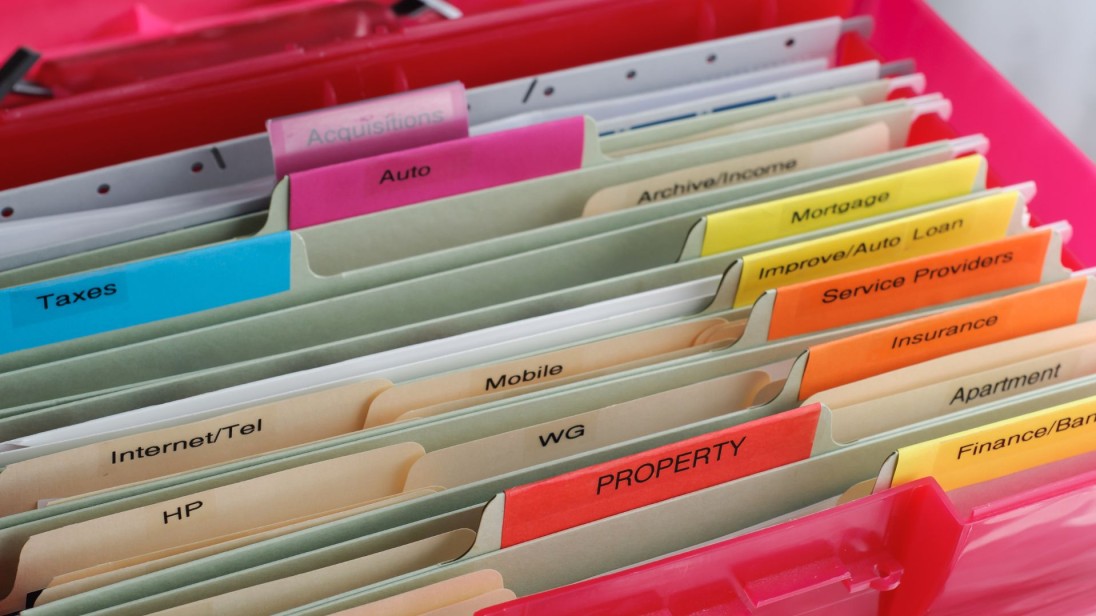You have a great idea of creating a business that has the possibility to expand worldwide. One thing you cannot skip before selling, signing agreements or lining up investors is to have the right legal documents for business so that you remain compliant and shield your brand.
Going global opens up an adventurous challenge, yet very stern legal obstacles. It is no secret that approximately 7 in 10 expansions made across the whole world fail due to mistakes in regulations rather than a bad product.
Losing any one crucial document may prove costly to you. The average cost of a single compliance error to businesses is approximately 14.82 million dollars, as opposed to 5.47 million dollars when the businesses operate within the rules.
This is a guide on what legal documents are needed to start a business in 2025. You will find out why they are important, how to obtain them, and how to remain compliant, both on a small project and on an international scale.
Essential Legal Documents You Need for Your Business in 2025

A business cannot be launched just because one has a good idea and money. The correct business legal documents are also necessary to keep your company within the regulations and safeguard your brand. The experience of knowing what legal documents you need to start a business saves you the trouble of making expensive mistakes at the bottom.
1) Company formation documents
You have to register your business with the official authority of your country. In most cases, this involves a filing of Articles of Organisation or Articles of Incorporation whereby your business is a separate entity in terms of the law. To understand more specifically how to do so, click on the official small business guide. Elsewhere in the world, refer to your local websites like Companies House guidance in the U.K., ASIC register a company in Australia, Your Europe – Starting a business in the EU, or the UAE government business portal.
2) Tax identification number
Your business needs a tax identification number to pay taxes, start a corporate bank account, and hire workers. In the U.S., this is concerned with the Employer Identification Number (EIN). In Canada, it is the Business Number (BN). In Australia, most businesses usually need an Australian Business Number (ABN). Other countries have similar IDs issued by their tax office.
3) Business permits and licenses
You might require certain business permits and licenses depending on your industry and location before you begin operations. Check requirements on official finders. In the U.S., witness licenses and permits. In the U.K., search Find a licence. Go to BizPaL in Canada. In Australia, search ABLIS via business.gov.au. In India, approvals can be checked on the National Single Window System. These include many small business legal documents that it is necessary to comply with.
4) Certificate of Origin
Most countries demand a Certificate of Origin, which reveals where your goods are produced when exporting products. It assists customs in determining tariffs as well as whether you are able to benefit from the trade agreements. Portals are also available in some countries, such as India’s DGFT COO platform, to issue certificates under different FTAs. The same appears in the legal documents for buying a business that has international trade.
5) Apostille or authentication
In situations when you require your business documents to be accepted in a foreign country, they might have to be apostilled or authorised. The countries that are signatories of the Hague Convention will acknowledge an apostille. Check the regulation at the formal HCCH Apostille section. In the case of the destination country not a Convention country, just do what your ministry of foreign affairs dictates, i.e. the U.S. Department of State authentication guidance.
Other Important Legal Documents to Protect Your Business

With your company formation documents, tax ID, licenses, and other basic registrations in place, the next thing to do is to have additional business legal documents that safeguard your operations, assets, and relationships. Not all countries require these, but it is highly recommended in case you do not wish to engage in any dispute, guard your ideas and operate your business with ease.
1) Shareholder Agreement or Partnership Agreement
In a partnership business or a company with several owners, you ought to have a partnership legal document or a shareholder agreement. This defines shares, decision roles, revenue sharing and divorce. In the absence of this, disputes can simply become a costly court challenge.
- In the U.K., you can refer to GOV.UK’s partnership guidance.
- In the U.S., refer to your state's official business site to find sample agreements.
In Australia, business.gov.au partnership resources offer detailed information. Business & legal document templates are used by many companies to draft such agreements preliminarily and only then to check them with a lawyer.
2) Non-Disclosure Agreement (NDA)
NDA prevents the leakage of business secrets. This is vital in any situation with prospective investors, suppliers or contractors.
- In the U.S., you can use the U.S. Small Business Administration NDA guide.
- In Singapore, the Intellectual Property Office of Singapore (IPOS) provides NDA guidance for startups.
3) Intellectual Property (IP) Registrations

Trademarks, patents, and copyrights can protect your business name, logo, inventions, as well as creative works. This aids in avoiding violators of your brand name or original products.
- For global trademark checks, use the WIPO Global Brand Database.
- In the U.S., visit the USPTO trademark registration page.
- In the EU, check the EUIPO trademark register.
4) Terms and Conditions & Privacy Policy
If you are running an online business, then you have to put up Terms & Conditions and Privacy Policy on your website. These legal notices outline the terms and conditions for customers operating your site, how e-commerce works, and how you think.
- In the U.K., check ICO guidance for privacy policies.
In Australia, see OAIC Privacy Policy requirements. For online stores, these form the foundation of legal documents for online business compliance.
5) Employment Contracts
In employment, it is important to have a written contract to clarify job descriptions, remuneration, benefits, and dismissal regulations.
- In Canada, check Government of Canada employment standards.
- In Singapore, see the Ministry of Manpower contract guidelines.
This also ensures proper legal business name documentation in HR files.
6) Legal Documents for Buying or Selling a Business

When acquiring another entity, the legal collateral would include: a Sales and Purchase Agreement (SPA), due diligence reports and transfer of licenses.
- In the U.S., the SBA buying a business guide provides detailed steps.
- In Australia, see ASIC business transfer guidelines.
The presence of such legal documents for business will protect you, minimise risks, and make your company more legitimate in the eyes of clients, investors, and partners. And these are essential legal documents in partner business transitions.
How to Organize and Store Your Business Legal Documents

Once you have gathered all the legal documents for business, the next point is to store them, and they should be easily located and up-to-date. Improperly stored or outdated documents may lead to delays, high fines or even legal suits. What legal documents do I need to start a business? This realisation early on will spare you the associated expensive errors at an early stage.
Choose Between Physical and Digital Storage
Other companies retain business legal documents in hard copy form, particularly originals, such as formation documents or signed contracts. Keep them in a secure fireproof cabinet and maintain copies together in another backup place.
Digital storage is now the norm since it is faster and can be retrieved easily. Keep the scanned copies: in secure cloud offerings like Google Workspace, Dropbox Business, or Microsoft OneDrive.
Don’t Miss Renewal Dates
Most legal documents needed to start a business are subject to expiry, such as licenses, permits and domain registrations. Create alerts on a spreadsheet, calendar or document management systems, such as DocuSign CLM, ahead of renewal dates.
Always Have a Backup Copy

It is dangerous to use only a single storage practice because a failure can result in the indefinite loss of data. Store a local copy on an encrypted hard drive or secure office server, and even have a cloud backup that is accessible remotely and can be locked down in services such as Google Workspace or Dropbox Business. Set up automatic backups and test them to make sure that you know you can restore your business legal documents in minutes should the need arise. Using a GPU dedicated server can further enhance data security and ensure consistent access to critical files.
Control Who Can See What
Every business legal document should not be shared with all employees. Restrict access to services. An example is senior management, which can make shareholder agreements, and HR, which can create employment contracts. Control permission and implement document activity through such tools as DocuSign CLM. You can also use a doc tracking system to monitor edits, views, and access history across your legal files Make periodic reviews and revisions of such authorisations to ensure their security, more so in case of position transfer within the company or termination of employment.
Organize Them Into Easy Folders

Having your business legal documents organised will definitely make life so much easier, especially when you need something in a hurry. So, how to keep your data organised: find a simple, decent way to structure your files and keep them there, and apply the same method to both your hard drive cabinet and your cloud database.
Make folders in your online storage (in Google Workspace, Dropbox Business, or Microsoft OneDrive, with clear and descriptive names so anyone who has access knows where to find them. Replicate the same structure on your physical records to have a uniform system within all areas.
This is a configuration that will suit most businesses:
- Company Formation: Incorporation documents, tax ID and business registration certificates
- Operational: Permits, papers, license, partners agreements, compliance approvals
- Financial: Tax returns, Bank documents, profit and loss statements, audit reports
- Contracts: Supplier agreements, NDA's, customer agreements, statements of work
Key Takeaways
- Compliance with the law begins early. Before setting up operations, it is important to register your company, obtain permits, and be covered by your legal documents for business.
- Guard your corporate resources. NDAs, IP registrations and shareholders' agreements can be used to prevent conflicts and protect your ideas.
- Internationalisation requires additional processes. To carry out international trade, you will be required to prepare such documents/certificates as Certificate of Origin, apostille or authentication.
- Stay organised. Access to store business legal documents can be stored in a secure place, remind of renewals and be granted or not to others.
- Revise papers on a regular basis. The law evolves and, therefore, you must update your small business legal documents to make them legitimate and up-to-date.








